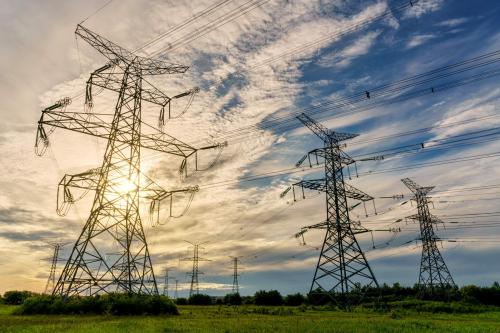Introduction
Are China’s growing energy needs insatiable, and is a resource war between China and other major energy-consuming countries, such as the United States, inevitable? China’s pursuit of overseas energy resources to feed its fast-growing economy has given rise to observations that energy is now the driving force behind Chinese foreign policy and predictions that potential conflicts between China and other countries are likely to arise as China becomes more aggressive internationally in search of resources.
Making reference to the power transition theory, David Zweig and Jianhai Bi, warn, “Although China’s new energy demands need not be a source of serious conflict with the West in the long term, at the moment, Beijing and Washington feel especially uneasy about the situation. While China struggles to manage its growing pains, the United States, as the world’s hegemon, must somehow make room for the rising giant; otherwise, war will become a serious possibility.” In fact the Chinese magazine Liaowang Dongfeng, in a widely quoted article titled, “Sino-U.S. war of competition for resources will become more intense,” predicted that the next major war for human society “is more likely to be a war over resources rather than as a result of the clash of civilizations.”
China’s energy usage began rising during the 1980s. In 1993 China became an oil-importing country and it is now the second largest oil consumer in the world, after the U.S. In recent years Chinese national oil companies have been very active internationally in the energy field. Some analysts are troubled by Chinese international energy policy. They find Beijing’s efforts in securing new supplies to be aggressive. China’s investments and acquisition of energy-related assets in countries shunned by the Western world on humanitarian or political grounds, and its purchase of equity oil are some of the key components of this perception. A Business Week report in early 2006 described China as “A bull in the energy shop.” The argument that China’s global quest for energy resources threatens to destabilize international and regional security, and may even lead to conflict, is widely shared among analysts outside of China and in the international press.
From the energy-needs perspective China’s international behavior may indeed appear aggressive, and potentially destabilizing, and in the longer run may lead to international conflict. Chinese foreign policy, however, has often characterized as seeking to avoid risk and develop good relationships with major powers, especially with the U.S., and maintaining a stable regional and international environment. The foreign policy perspective suggests that China would continue to secure a peaceful international environment and to benefit from the existing global economic order. The tension between a highly assertive international energy policy and its far more cautious foreign policy thus presents a paradox to students of Chinese international behavior. Are Chinese foreign and international energy policies becoming divergent? To what extent has China’s foreign policy been driven by its need for energy resources under Hu Jintao? Are we witnessing the emergence of a more assertive foreign policy that is shaping China’s overseas activities in the energy field?
This paper addresses these questions by looking at China’s nengyuan waijiao (energy diplomacy) with special reference the developing world, especially Africa and Latin America-the regions that are geographically farthest away from the People’s Republic and where Chinese presence and activities have been limited until recently. The paper will examine the following issues: first, China’s growing energy needs and international concerns arising from China’s pursuit for overseas resources; second, whether energy diplomacy has become the key issue on Hu Jintao’s foreign policy agenda; third, China’s broader links and policies towards the developing world with reference to Africa, Latin America and recent developments in the Middle East, especially in regard to Iran’s nuclear weapon program; and fourth, China’s overall approach in addressing its energy security/insecurity. The paper will conclude with a discussion on the implications of China’s energy security needs for U.S.-China relations.


